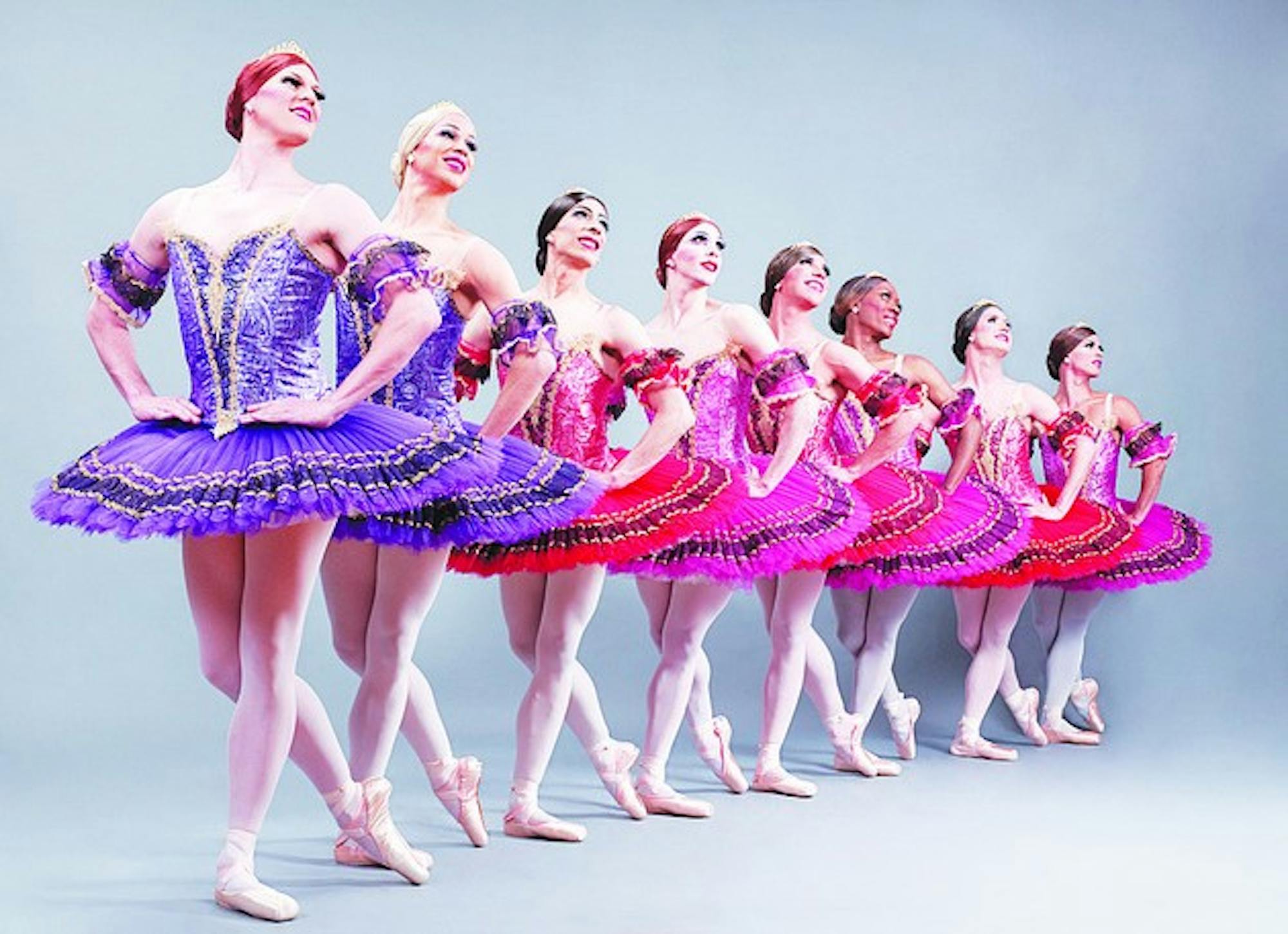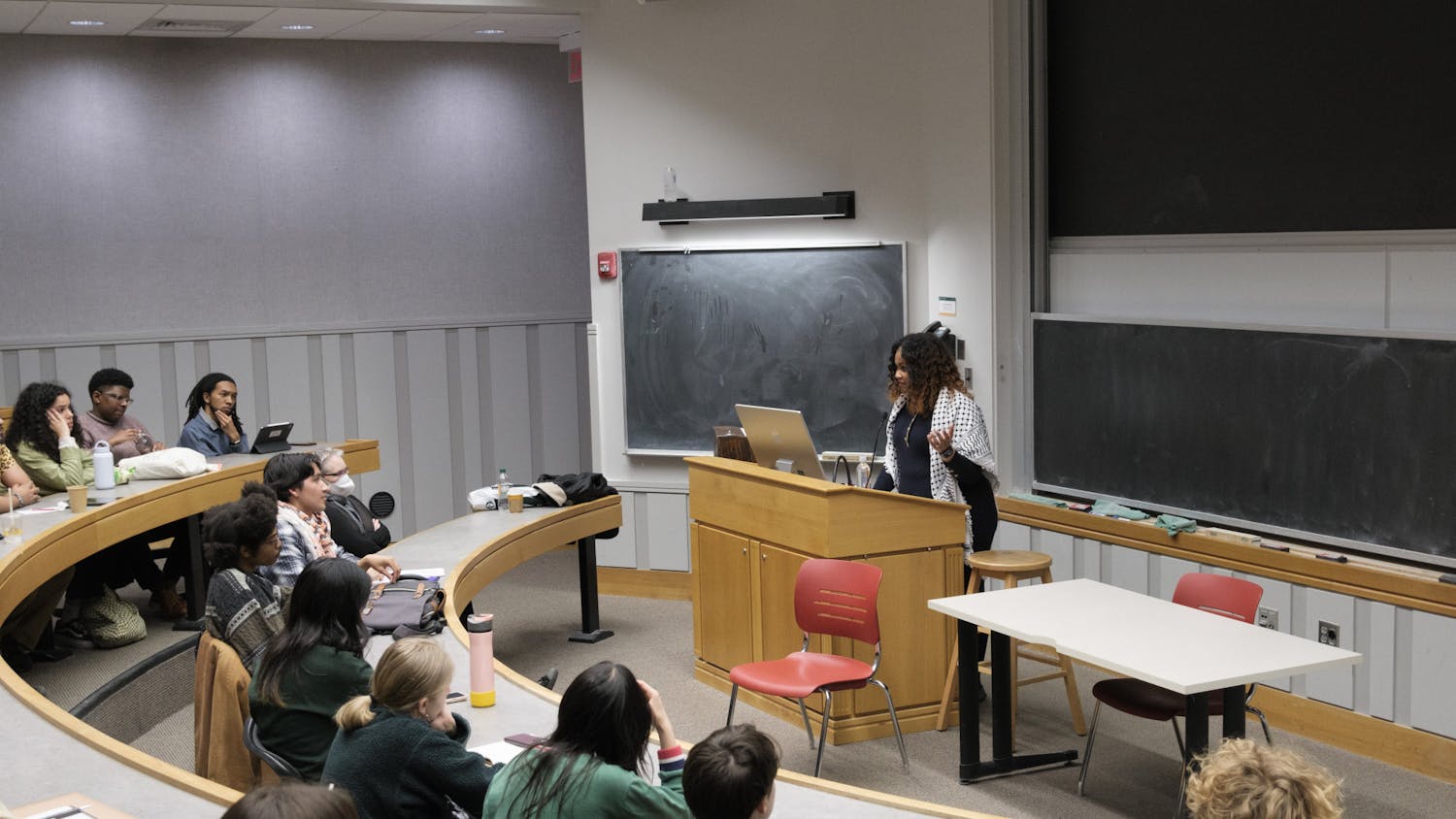An all-male ballet troupe from New York City, the "Trocks" satirized ballet's traditional sobriety with choreography that balanced comedy with true talent. Their shows, held in Moore Theater on Saturday and Sunday nights, proved both awe-inspiring and hilarious.
The performance opened with Act II of "Swan Lake," in which Odette, performed by Roberto Forleo under the guise of "Marina Plezegetovstageskaya," set the tone for the rest of the night. From the start, a near-continuous chuckle could be heard throughout the auditorium, as audiences responded to Forleo and the company's exaggerated makeup and facial expressions.
The Trocks do not try to model a female ballerina's characteristic finesse, but channel the strength of male dancers into their dances instead. Each of the troupe's 16 dancers, though only 14 were present this weekend, have two fictional dancer identities. The program credited both for the stage roles and included goofy false biographies alongside dancers' true histories,
The idea of "intermediate" characters allows for one distinguishing aspect of the Trocks the non-uniformity of their corps de ballet, the supporting dancers in any given act. While the corps de ballet's traditional role is to serve as a backdrop for the lead dancers, each member of the Trocks' corps developed his own identity, sometimes in acts of outright buffoonery.
From a dramatic trip on an entrance, to one dancer jumping on another piggyback-style as they scrambled off the stage, the background dancers took attention away from the leads, a stage taboo the troupe was not afraid to play with.
"Every leading dancer has their own type of comedy," artistic director Tory Dobrin said during an informal question and answer session after the performance.
Their antics kept the audience's attention. Even the leads would at times break their formal on-stage character by showing dramatic frustration with their partner or celebrating a technical landing. In one memorable moment, Prince Seigfried traversed the stage in comically poised silence, looking out at the audience as if to say, "I dare you not to laugh."
The Queen of the Swans returned later in the evening as Ida Nevasayneva, the alter-ego of Paul Ghiselin, and performed "The Dying Swan." Boldly trampling in one of ballet's most sacred scenes, the ballerina left a trail of feathers as she danced and then paused the performance to collect the feathers into her tutu.
In a cartoonish near-death moment, she lay on her back with stiff limbs pointed towards the sky before getting up to continue dancing, much to the audience's enjoyment.
The performance also included acts drawn from sources other than "Swan Lake." During the distinctive "post-modern dance movement essay," which satirized the entire genre of avant-garde performance, two performers dressed in black sat on the side of the producing live music with ridiculous methods, rattling a large bottle of ibuprofen and blowing on dollar store kazoos.
The evening was not, however, without its moments of great dancing. Solos during the last act, "Spanish Dancers," showed the true talent of the performers and posed a stark contrast to the slapstick antics of the "Swan Lake" selections.
The troupe intends for its audiences to have fun in addition to viewing high quality dancing, Dobrin said.
Erica Garfin, a Montpelier resident, said she most enjoyed the moments of "straight dancing, without the humor."
Enfield resident Martha Rich said she loved the way that the troupe made ballet "really accessible."
"I loved it and expected to love it," she said.
To end the show, the troupe performed "A River Dance," reminding the audience as if they could forget that the group doesn't take itself too seriously.
Eli Howey '15 praised the variation throughout the show.
"I thought it was hilarious, really campy and a lot of fun," he said.




